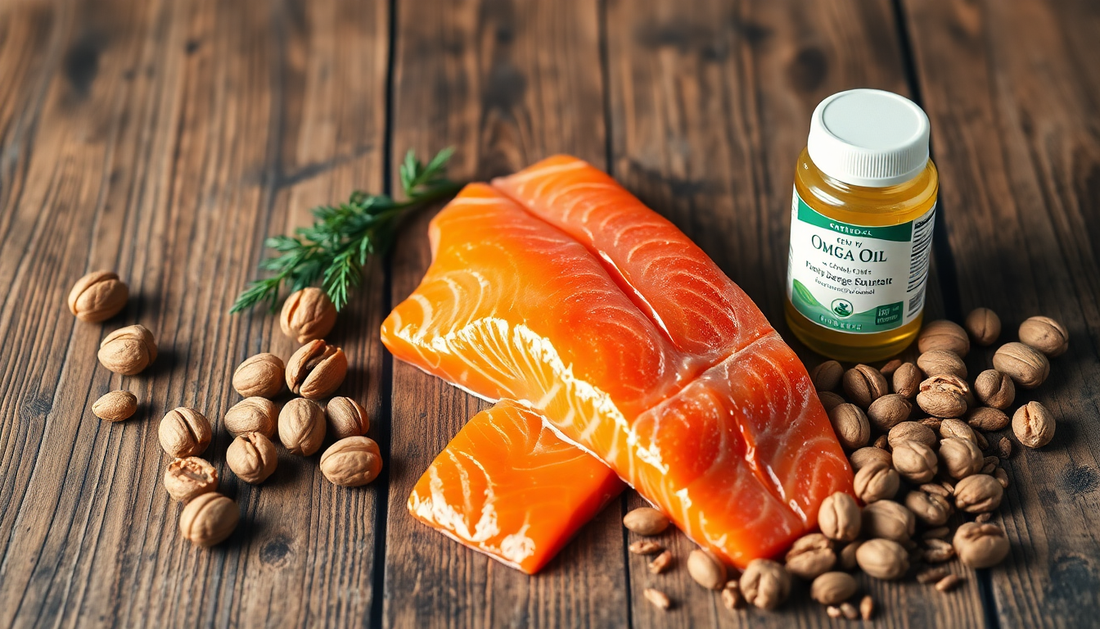
The Role of Omega-3 Fatty Acids in Post-Surgical Recovery
Share
Understanding the Importance of Omega-3 Fatty Acids
Omega-3 fatty acids, particularly eicosapentaenoic acid (EPA) and docosahexaenoic acid (DHA), are essential nutrients that our bodies cannot produce on their own. These fatty acids play a crucial role in reducing inflammation, supporting immune function, and promoting wound healing, all of which are vital for a smooth recovery after surgery.
Omega-3s and Their Role in Post-Surgical Healing
Surgery triggers an inflammatory response as the body works to repair damaged tissues. While this is a necessary step in the healing process, excessive inflammation can lead to increased pain, swelling, and a prolonged recovery period. Omega-3 fatty acids help modulate the production of inflammatory mediators, such as prostaglandins and leukotrienes, thereby reducing excessive inflammation and facilitating a quicker healing process.
Additionally, omega-3s promote angiogenesis, the formation of new blood vessels. This is crucial for delivering oxygen and essential nutrients to the surgical site, accelerating tissue repair, and reducing the risk of complications such as delayed wound healing or infection.
Scientific Evidence Supporting Omega-3s for Surgical Recovery
Several studies have demonstrated the benefits of omega-3 fatty acids in post-surgical healing:
- A systematic review and meta-analysis published in the Journal of Parenteral and Enteral Nutrition found that perioperative omega-3 supplementation was linked to reduced hospital stays, lower postoperative complications, and improved immune function (PubMed).
- A study published in Annals of Surgery reported that omega-3 supplementation significantly decreased the risk of postoperative infections and shortened hospital stays for patients undergoing major abdominal surgery (PubMed).
These findings highlight the potential of omega-3s in enhancing recovery, reducing inflammation, and improving overall surgical outcomes.
Best Dietary Sources of Omega-3 Fatty Acids
The best sources of omega-3 fatty acids include:
- Fatty fish: Salmon, mackerel, sardines, and tuna
- Plant-based sources: Flaxseeds, chia seeds, walnuts, and algae-based supplements
- Omega-3 supplements: Fish oil, krill oil, and algae-derived omega-3 capsules
For those who do not regularly consume fatty fish, high-quality omega-3 supplements can be an effective alternative. A daily intake of 1,000-2,000 mg of combined EPA and DHA is generally recommended, though individual needs may vary.
Potential Benefits of Omega-3s for Surgical Patients
Incorporating omega-3 fatty acids into a post-surgery wellness routine offers several potential benefits:
- Pain Management: Omega-3s help mitigate inflammation, potentially reducing reliance on pain medications.
- Faster Wound Healing: Their role in angiogenesis and immune support promotes quicker tissue repair and incision closure.
- Enhanced Immune Function: Omega-3s support immune health, helping to prevent infections during recovery.
- Reduced Risk of Complications: By modulating inflammation, omega-3s may lower the risk of complications such as excessive swelling and delayed wound healing.
Considerations and Precautions
While omega-3 fatty acids are generally safe and well-tolerated, it is important to consult with a healthcare provider before adding supplements to your routine, especially if you are taking blood-thinning medications or have underlying health conditions. The timing of omega-3 supplementation may also vary depending on the type of surgery, so professional guidance is recommended.
Conclusion
Omega-3 fatty acids can be a valuable addition to a post-surgical recovery plan, offering benefits such as reduced inflammation, improved wound healing, and enhanced immune support. Consult with your healthcare provider to determine the best way to incorporate omega-3s into your recovery regimen, ensuring a smooth and efficient healing process.
Medical Disclaimer: This article is for informational purposes only and should not be considered medical advice. Always consult with a qualified healthcare provider before making dietary or supplementation changes, especially post-surgery.
